How can an atheist have a spiritual experience? It happens to me all the time, and it happens more often when I am true to myself and my sense of reality.
First, let me be very clear. I am speaking only of my own journey, my own psychological and spiritual path, my own beliefs. I am not speaking of your truths, path, or experiences. I do not wish to dictate your direction in life, or say that my perspective is right and everyone else is wrong. I do not judge or shame, nor do I believe I am more fully evolved that anyone else. It is important for me to clarify that, since so many of my readers are LDS or freshly exmormon, accustomed to hearing authoritarian statements delivered in an absolutist, prescriptive frame. That is the opposite of my purpose.
I am an atheist. To me, this simply means I do not believe in God. I grant that one or more gods may exist, but that does not make me agnostic because I do not believe in any of them. I do, however, believe that human beings think in stories, emotions, and symbols, and in this sense, we all have an internal spiritual language. Belief in the unseen can be healthy, especially when it is self-directed. So I consider myself a spiritual atheist. More on this here.
So I went to my first Sunstone Symposium, where the 2015 theme was “The Mormon Mind.” I felt a little mistrustful at first, nervous, expecting to have to walk on eggshells so as not to offend the touchy true believers. How would they react to a longtime exmormon? How would they react if I professed my inability to believe in the literal truth of God, Joseph Smith, or the Book of Mormon? Worse, how would they react when they heard my presentation, which basically calls Mormonism a cult? Thanks to my recent experiences going back to church, I knew I could listen to their confessions of faith without flinching (mostly). But how would they react to me?
I needn’t have worried. They welcomed, accepted, and loved with the same degree of warmth that I welcomed, loved, and accepted them. I met Mormons on all ends of the spectrum, with one exception: there were no close-minded, isolated TBMs, at least not that I encountered. I met longtime exmos, recent exmos, people with no testimonies who stay in, those with testimonies who have left or been excommunicated, those who believe parts of the gospel but not all, and even one woman who is an atheist nevermo but who simply has a deep fascination with Mormonism.
All who spoke, both publicly in talks, or in private conversations, were open and respectful. They openly shared their own heart to the extent they felt comfortable, and they respectfully listened to the experiences of others without judgment. We were all personally grounded in our own spiritual center, such that the expressions of others were non-threatening, even where there was much dissent and disagreement.
I wrote a little about how dissent is not contention in “Feeling the Spirit as a Secular Mormon, Or, How I Learned to Stop Worrying and Love the Spirit.” There is a strong difference strife-filled disagreement and disagreement within the context of unity in love. Once you’ve experienced it, it is easy to understand but so difficult to convey in words. I will keep trying.
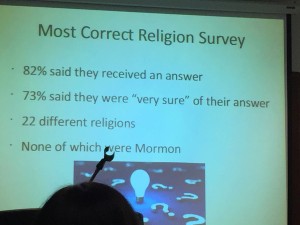
From Carson Caulderwood’s talk, “Evolutionary Thinking: Why We Are Prone to Believe and Have a Hard Time Leaving a Religion”
I also described in that post how I understand the Spirit. Briefly, it is a collection of biological feelings (like love, integrity, serenity) that have been reframed by the totalist institution so that they always point to the infallibility of the leadership of the Church. But in my path, I have re-reframed them so that I can own those feelings once again. This collection of feelings I call the Spirit points like a compass to my spiritual center. The Spirit directs my feet in the path that is just right for me. It may or may not be the right path for others, but if I refuse to listen to my own spiritual center, I will falter and be frustrated and I will suffer.
I heard this message being confirmed, in different ways and in different words, using different symbols or couched in different metaphors, the whole week. Whether it was Fatima Salleh calling us to hear God’s call (however it is we experience “god”), or in John Dehlin saying, “Now when people come to me for therapy, I don’t try to fix them; I teach them how to listen to themselves,” or in Christopher Bradford’s talk on unity vs. plurality that contrasted different types of music to show that it is possible to have unity without sameness.
It brought into plain sight the gulf between the various types of Mormons, and this barrier seems unnecessary. There are vast interconnected communities of exmormons. There are growing interconnected communities of fringe Mormons and LDS activists. The two sets seem completely unconnected.
For instance, I spoke with a woman who was hobnobbing with all the famous fridge LDS (some recently exed) yet she hadn’t heard of John Larsen, Richard Packham, or Jeff Ricks, all major names in exmormon circles. Just as I was getting to meet and learn the names of many fringe Mormons. And on the other end of the spectrum, when I posted on PostMormon.org that I was speaking at Sunstone, one participant called Sunstone attendees “codependent” and blamed them for the Church’s continued existence.
The distrust between the two communities is clear, and it causes a deficit of cultural cross-pollination. Their mutual distrust is understandable:
Exmos (including myself) project onto the fringe believers their pain and hurt that they have associated with TBMs (True Believing Mormons). They fear that fringe Mormons will judge and hurt them as their TBM friends and family have done. They fear being shamed and dishonored.
Fringe Mormons suspect that us exmos are angry, unreasonable, and about to launch a personal attack at any moment. They fear being shamed and dishonored.
When both types of Mormon intermingle, there is a sense of walking on eggshells, both to avoid unintended offense, and to avoid being hurt by the other party.
The distrust itself seems to stem from specific aspects of LDS culture and doctrines that neither group subscribe to any longer. The Church told all of us that apostates are evil, angry, and unreasonable. Exmormons feel we have to defend against that stigma. Many fringe Mormons may still cling to that stereotype because they haven’t actually met many exmos. And of course, being fringe or exmo, we sometimes still carry these stigmas about ourselves and are defensive and uncomfortable on that level, regardless of the type of Mormon we interact with. The only type of Mormon we perhaps feel safest around are those in a very similar place as us.
And it’s sad, because we have common cause. We share the same frustrations, interests, and goals. In general, both groups are against the unrighteous dominion and control the Church places on members. Neither likes the Church’s stance on LGBT issues, abuse, demand for purity, racism, sexism, deception about history and finances, the way the Church rips families apart, and so many other issues. We share a common language and background. To various degrees, we share a common sense of betrayal and doubts.
Exmormons have come a long way since RfM (aka the “Mad board”) and Utah Lighthouse Ministry were the only game in town. And Sunstone has come a long way since it was only composed of BYU faculty in mortal fear of losing their jobs. (Nothing against these pioneers!) Both communities could greatly benefit from one another, and both have matured enough that we can join forces. There is no reason why we can’t work together on many of these issues… or even just commiserate over a bottle of Diet Coke and cup of coffee, respectively.
Both communities really just crave respect and validation. Both groups are filled with people who are tired of, and afraid of, being shamed. Our distrust of one another has a common source, as does our shame. Together, we could do great things to end the harm caused by that source.
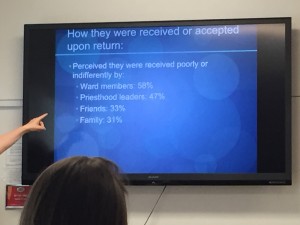
Example common cause: missionaries who return early experience trauma, according to “Return with Trauma” delivered by Dr. Kristine Doty at the Mormon Mental Health Conference
I realize I am oversimplifying this problem. There are, of course, difficult differences between us. Fringe Mormons still have their sacred cows that we exmos really don’t give a shit about. (<— for example.) And many exmos are hurting so badly that they really are off-putting in their anger, and even fringe Mormons can’t offer enough safety for them. They need their space to be irreverent and kick and scream without being tone policed.
But I don’t think these differences are all that difficult. I saw this happen at Sunstone. The lion laid down with the lamb. (I’m not going to speculate who is the lion and lamb in this analogy.) We all got along. We were edified and comforted by one another. It was like some kind of flipping miracle.
Speaking of miracles, my talk went really well. It was in one of the larger rooms, with nearly every seat filled, even on a Thursday. My words were well-received and only a couple of people seemed offended enough to walk out early. I ran out of handouts immediately (you can download those slides here), and a dozen people came up to speak with me right after. Throughout the course of the week, I received compliment after compliment, specifically on how interesting it was, how professionally delivered, and on how memorable it was. I did make a few mistakes, which I shall learn from, but it looks like all my hard work paid off.
I experienced so many other great talks, both at Sunstone Symposium, and at the Mormon Mental Health Conference the day before, that trying to describe them won’t do them any justice. I felt educated, inspired, motivated, uplifted, and a lot of feelings the Church said I was supposed to feel while sitting in the pews but rarely did: Edified, loved, comforted, healed, enlightened, and filled with the Spirit. This feeling carried with me as I waited at the airport for my flight, and as I touched down in Seattle.
I felt the tug of “god” pulling me in a certain direction. I am in the middle of huge upheavals and indecision in my life right now. I don’t understand what is at the end of that path, but the signals were clear, “Go this way,” like Siri telling me to turn right in 1000 feet when I haven’t yet told her where I want to end up. I believe in synchronicity, even if it’s just confirmation bias combined with random neurons firing in my subconscious. There is a certain kind of letting go, going with the flow, allowing the stream to carry me where it wills, that has buoyed me through difficult times in my past and delivered me safely into magical realms I never thought I could go.

I totally said in my talk that you’d see confirmation bias everywhere. See, here it is in someone else’s talk! (Carson Caulderwood’s “Evolutionary Thinking”)
Fatima Salleh asked us, in her incredibly inspirational talk “Finding the God that Calls to You,” to follow God’s personal call. I’ve done this often enough that I recognize the call of the universe when it begins to tug at me. It’s scary writing these words, committing them to the internet forever, but the universe is calling me to continue to do the work I’ve started here. Somehow, in some form, I need to keep working with Mormons and exmormons. There’s a certainty about my uncertainty that I find great comfort in, even though I’m not sure what I’ll be doing this time next month or how I’ll pay even rent.
There is movement afoot in the Church. This Sunstone Symposium tripled in size, expanding last year’s 600 to 1500 this year. The conference reverberated with a sense of activism, energy, change, growth. People told stories of how their whole extended family was slowly, one by one, leaving the Church. Presentations delivered on the most amazing studies on things like return missionary trauma, fMRI scans on the brain to look for “the Spirit” there, the transgender Mormon experience, and on how dissent is healthy. Activists of all stripes spoke with conviction of their work and how they are changing hearts and minds. There was a spirit of love, understanding, listening, and compassion at every turn, as well as of intellectual inquisitiveness, a passion for questioning and learning.
My own soul healed a bit more on this painful and adventurous Mormon journey I was born into. So were the souls of many others.
This time in Mormon history feels like a Book of Mormon story. It seems like the days of Prophet Abinadi, who called King Noah and his priests to repentance, and they burned him at the stake, but others were listening, and they formed a community around other leaders like Alma, and they fled into the wilderness to form their own community free from the corruption of the priests of Noah.
Big things are coming. I don’t know what, but I feel pulled along in the current. I want to be part of the tideswell, to share my time, gifts, and talents in the building of a kingdom that is inclusive, that accepts the divinity within the hearts of all it’s members, that truly protects “the least of these,” God’s children.
Sunstone Symposium is a model of what the Church could be, where, instead of obedience and submission to authority, reality and science are revered, where respect and love are the unifying doctrines that binds together all manner of diverse hearts and minds, where all can feel safe to be authentic and to prophesy and worship according to the dictates of their own conscience. I am excited to see what the passage of time may bring.

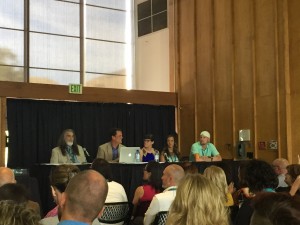




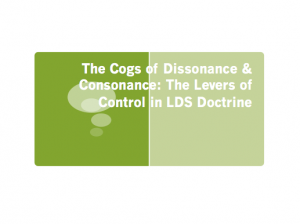


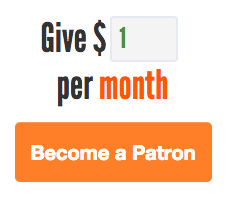
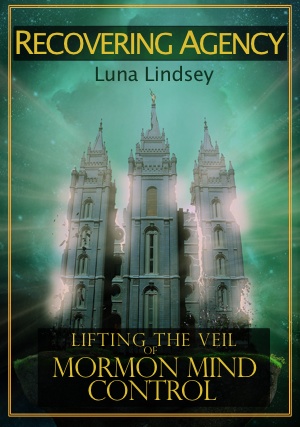
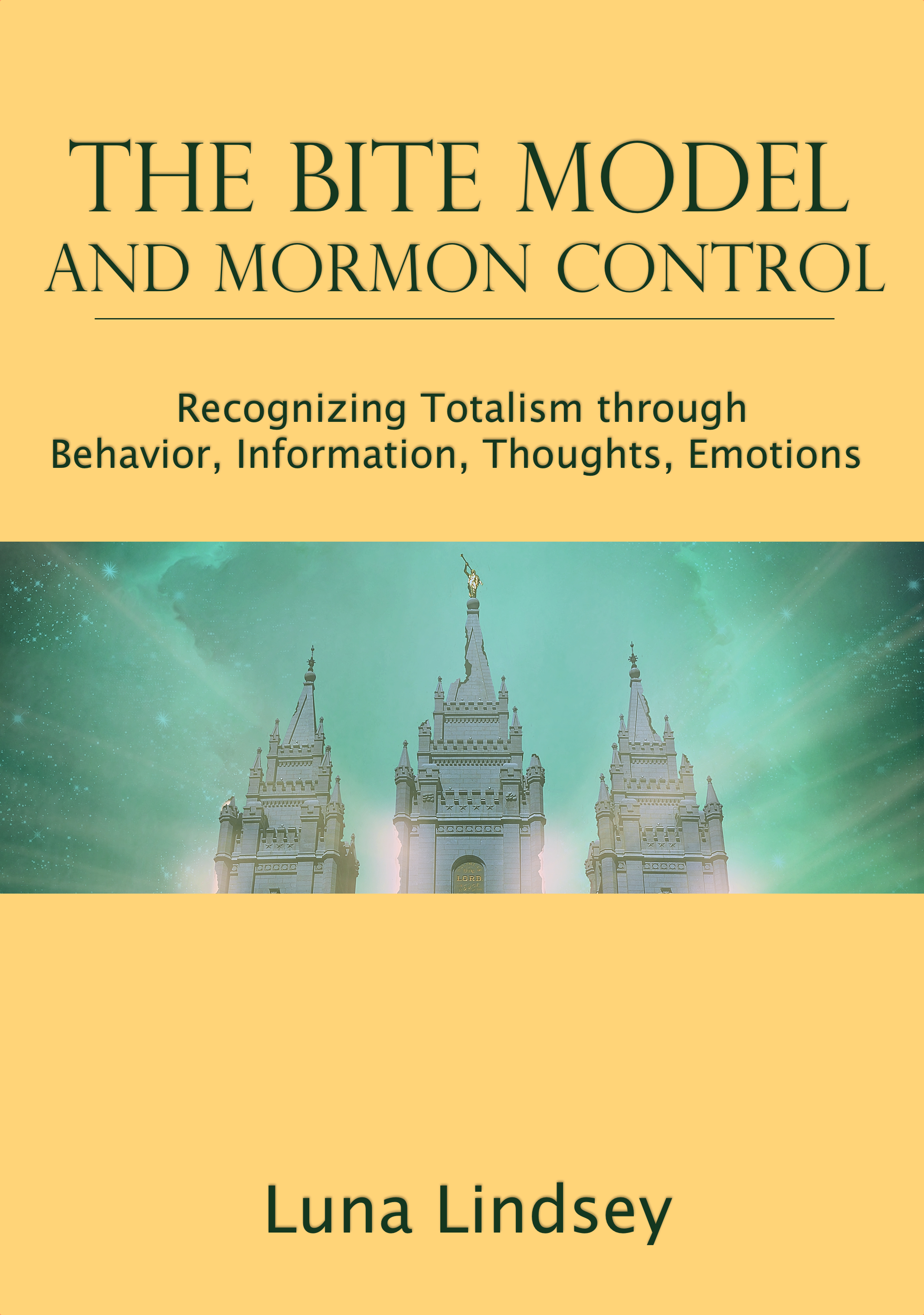
6 comments
Skip to comment form
ex-mos and atheists have been participating in sunstone, loudly and honestly, and managing just fine at it, since before you had even the slightest doubt about the church. but it’s cute to see you imagine that you’re facing some sort of challenge no one has ever encountered before
Author
Juni, your comment confuses me. I’m trying to figure out what point you’re making. It seems like the only purpose is to put me down and belittle me as a person. The only information you seem to be conveying is that Sunstone has been welcoming to exmos and atheists all along, which is a valid point, but that makes me wonder if you actually read my entire post. I’m fairly sure you didn’t.
You might, for instance, have noticed that the point of my post is about *communities* not about individuals. I spoke about the distrust between the cultures, NOT individuals. I spoke mainly of my own experience for 15 years interacting purely in the exmormon community, and my own observations of many other exmos acting mistrustful of Sunstone and other fringe LDS communities. How could I imagine that this challenge is unique to myself when I cite other exmos who seem to be facing this challenge even more strongly that I did? And the fact that I and others have avoided Sunstone for so long actually bolsters my point: Which again, is that the communities (as a whole) have been mistrustful of each other. And that this might be changing.
And why the attack against how long I’ve been out of the Church? I’m not sure you know when I first started doubting. I left the Church 15 years ago, and doubted often before that. Perhaps your attendance at Sunstone predates even my childhood, but an attack against my age (which isn’t, BTW, all that young — I’m 40) also doesn’t make sense.
But perhaps I’ve entirely missed your point and you’re much smarter than I am. If so, perhaps you could explain it to me better. If that’s not the case, please refrain from personal attacks on my site, and try to make useful points backed by logic or descriptions of your own personal experiences.
Thanks!
Hi Luna,
I loved your presentation at Sunstone! This was my first year at Sunstone, too, and I had similar experiences. The atmosphere of love and acceptance for everyone was awesome. I’ve never seen such a diverse group with such respect for each other anywhere, let alone in a “mormon” setting. It was truly healing. Your presentation really hit home for me since the first subject I began to study after my “shelf broke” was psychology. I was preoccupied with the Milgram experiment and then the Stanford Prison experiment. I was really taken back by the realization that obedience to authority had so much power in my own life up to that point. I look forward to reading your book.
Thanks again!
Author
Thanks for your message, K. I’m so glad you had a similarly good experience at Sunstone. I hope you get a lot out of my book. You should enjoy it. And I hope to see you at Sunstone next year!
Hi Luna,
You write so intelligently. I’m struggling after coming out of a marriage (no final divorce yet) with a man who I’ve now come to realize used the BITE model and some mind control techniques on me to keep me in my marriage. It has had the unexpected effect of making me question my own religion, Catholic not LDS. However, I was hoping desperately to find a way to regain my faith as I take the scary steps of starting over financially at 46 with little to show from my long term marriage other than my children, when all of the sudden my best friend, professional colleague/mentor, dropped dead unexpectedly *while at work* — he was only six months older than me, 47. He died suddenly from an undiagnosed enlarged heart.
He was a devout LDS Member and I struggle nearly 12 weeks later, wondering if he didn’t kill himself by pushing himself too hard to be “perfect,” (which he absolutely did), and which I now am watching his poor, sweet widow do to herself. (Coroner’s report doesn’t identify the cause of the enlarged heart but circumstances point towards a viral cause, not a congenital condition.)
Do you have any essays on this emphasis on perfection? I have stumbled upon your website while trying to learn more about mind control and I enjoy your logical and respectful dissertations immensely. Sorry if I am asking an obvious question that I could have found from more exploration of your blog.
I also wanted to compliment your poignant, logical and excellent writing style, as well as your personal courage. :) I need to have more courage myself these days. My recently passed friend was also a protector of mine at the law firm in which we were both litigators. Now I’m left alone with the sharks ~ so fun. Not sure what is worse: being potentially brainwashed by a religion and/or ex-spouse, or being surrounded by narcissists and sociopaths in the workplace, and *knowing* it. (Our profession seems to attract these sorts of characters, so changing firms is not the obvious answer.) Regardless, please accept my praise for your research, writing, and bravery, and keep up the good work!
– Stephanie
Author
Hi Stephanie. Thank you for your kind words!
I’m sorry to hear about your marriage. I, too, have just left a long-term committed relationship, and am now taking stock of the manipulative patterns I experienced there, and how they still negatively impacted me. It’s really difficult. I’ve been reading a lot and watching videos on narcissism.
And I’m also sorry to hear about your friend. :( How sudden. I didn’t realize a virus could do that.
I do have a short article on perfectionism here. However my book has a whole chapter on the subject that greatly expands on this, along with new research on toxic perfectionism as it relates to Mormonism specifically. I talk about research done by Dr. Kristine Doty and others at Utah Valley University a couple of years ago.
Here is what I have available online: http://recoveringagency.com/articles/the-methods-of-thought-reform/demand-for-purity-perpetual-inadequacy/
Thanks again, Stephanie!